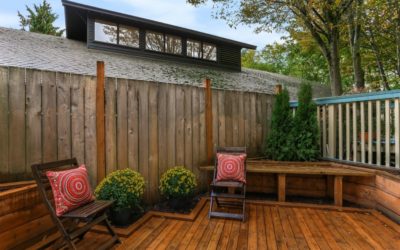Hosts can now report their home sharing income when applying for refinancing
Short-term rental-by-owner service Airbnb got a major win for its hosts on Thursday — but also dealt with the fallout from a serious and unusual blow in Detroit.
First the good news: people who list their homes on Airbnb will now be able to report their rental earnings as income when they apply to refinance their homes via Fannie Mae, Quicken Loans, Citizens Bank and Better Mortgage. In the past, lenders haven’t recognized money coming in through Airbnb as income on mortgage applications.
“For the first time, hosts in the U.S. will be able to work with participating lenders to recognize Airbnb home sharing income from their primary residence as part of their mortgage refinancing application,” Airbnb said in a blog post.
This only applies to home refinancing, not to first-time mortgage applicants. Airbnb didn’t answer questions about the reasoning behind this.
Airbnb will provide hosts with an “Airbnb Proof of Income” form when they apply via these lenders.
“We are very excited to be collaborating with the leader in home-sharing and tech-driven property rentals. Airbnb and Quicken Loans are firmly aligned to drive innovation in the real estate industry to dramatically improve and simplify client experience, as well as saving homeowners time and money,” QuickenLoans CEO Jay Farner said in a statement.
At the same time, Airbnb faced a setback in Detroit. A zoning rule that was passed in 2017 went into effect this week, Curbed reported, barring many residents from listing their homes on Airbnb.
But unlike other cities where legislation banning short-term rentals has gone up for a vote after months of animosity, this regulation took effect without any public debate or intense opposition against Airbnb.
The rule came from Detroit’s Zoning Board, not through a city council ordinance. The city council seems to have approved the zoning rule as a formality without much attention paid to its effects.
Compared to a city like New York, where politicians and the hotel industry have come hard at Airbnb, criticizing its effects on the housing market and quality of life for residents, Detroit has been outright welcoming to the short-term rental platform.
Detroit’s mayor appeared in an Airbnb promotional video, citing the platform’s benefits for residents who live in Detroit’s historic, large houses.
Residents started receiving cease and desist letters in the past few weeks before the rule took effect. One letter posted by Curbed specifically warns a resident to “discontinue use as an Airbnb” — not just as a short-term rental.
The regulation bans paid overnight guests in R1 and R2 zoning districts in the city — districts zoned by Detroit as a single-family residential district and two-family residential district, respectively. That’s where many Airbnb listings in the city are. Denser areas made up of apartment buildings aren’t affected.
“We’re very disappointed by this turn of events. Airbnb has served as an economic engine for middle-class Detroiters, many of whom rely on the supplemental income to stay in their homes. We hope that the city listens to our host community and permits home sharing in these residential zones,” Airbnb said in a statement.
Article image credited to Open Grid Scheduler / Grid Engine / flickr / CC0 1.0 Universal (CC0 1.0)



